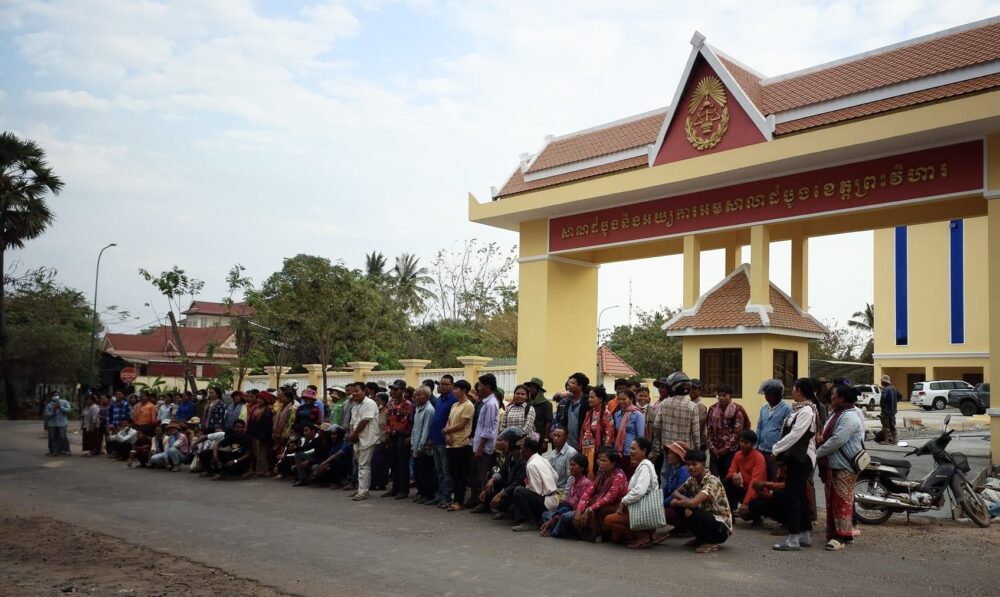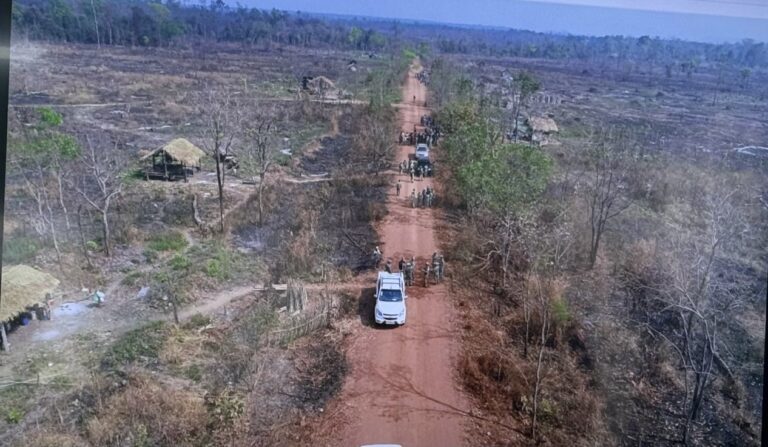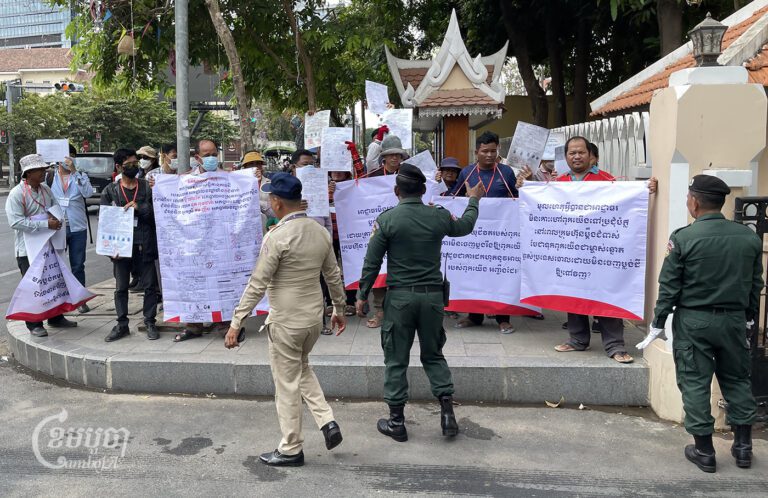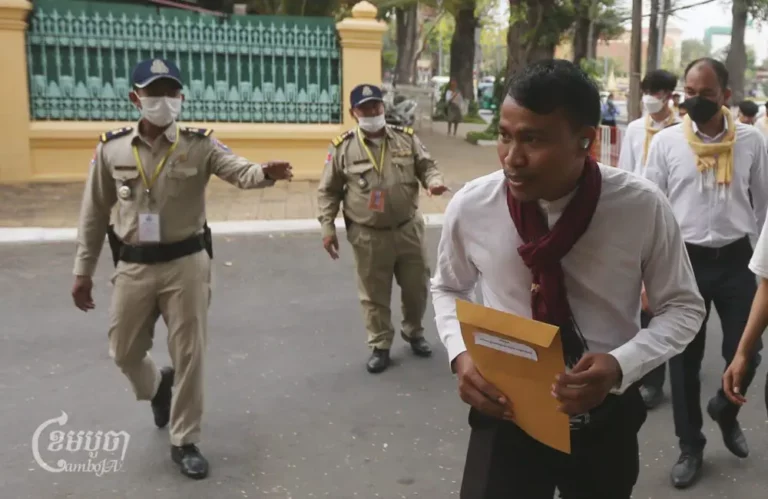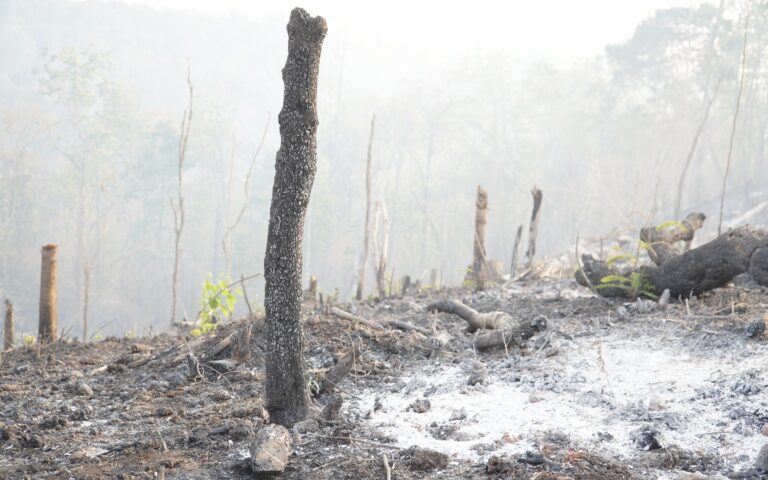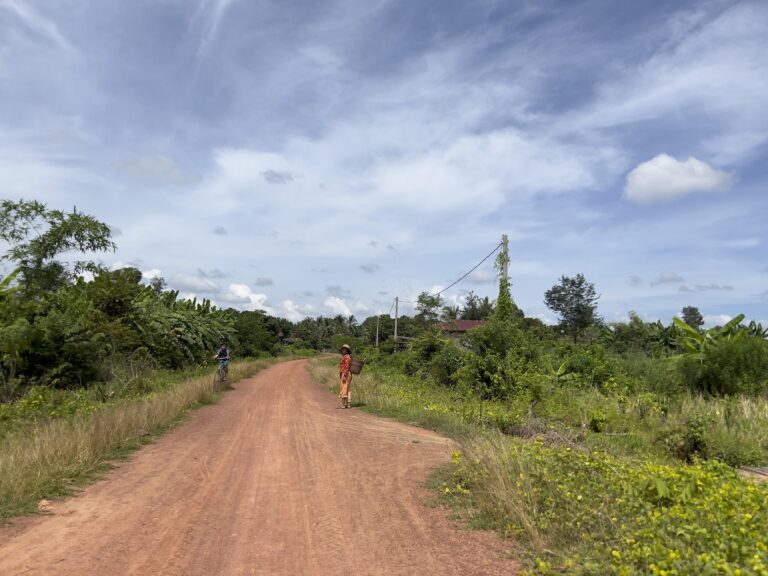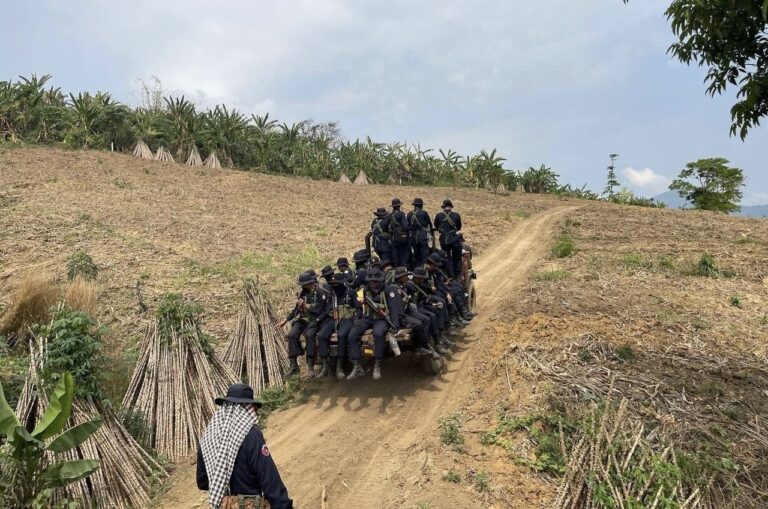On Tuesday Preah Vihear Provincial Court questioned four Kuy Indigenous residents of M’lou Prey II commune, Chheb district, who are being sued by a representative of a Chinese company for allegedly obstructing the company’s development and inciting people to illegally occupy state land.
The court’s questioning stems from an incident on February 11 in which Preus Ka’ak community residents clashed with outsiders who brought tractors and attempted to clear what residents say is community land. Following the incidents, Preah Vihear provincial court summoned four Kuy residents to appear in court on Tuesday.
The site of the disputed piece of land may overlap with an economic land concession that was granted to Hengfu Group Sugar Industry in 2011. According to a 2019 VOD investigation, the company skirted Cambodian law to receive a concession four times the size of what is legally permitted.
Community members have clashed with the company over the years, including facing threats of legal action and lawsuits filed by the company and its subsidiaries and contractors. By early 2020, the company had shut down its operations and community members began farming on the land again.
“The court questioned me about the case and I just told the truth that people did nothing wrong as the people came to cultivate their land, not the company land,” said Pean Sophat, one of the Preus Ka’ak community members summoned for questioning.
He expressed his disappointment at what he views as encroachment from outsiders on community land, and is concerned about his community’s long-term land security.
“It is difficult to safeguard our land security since we do not have legal titles that allow us to have full jurisdiction over our land. But, traditionally, Indigenous people cultivated [this land] before the company was granted an economic land concession,” he added.
He wants authorities to drop all of the charges and respect the rights of Indigenous people.
Another Kuy defendant, Preus Ka’ak community representative Seourn Tha, expressed his frustration with the court system, saying that Indigenous people are facing injustice.
“We urge the court to drop all charges and give us freedom of conscience over our customary land. There is so much intimidation and threats to the Indigenous people that we cannot freely make a livelihood on the land, ” he said.
Tha told CamboJA News that the authorities do not allow cultivation on the disputed piece of land. He said community members in the area who have no land to plant crops for their livelihoods need to use the customary land that has historically been farmed by Indigenous people.
A representative of the company could not be reached for comment.
Community members sought help from lawyers from the NGOs Licadho and Cambodia Indigenous Peoples Organization (CIPO) in the case.
Lote Sang, a lawyer with CIPO who provides free or low-cost legal services to Indigenous people, is assisting the four defendants in this case. He told CamboJA News that the Preah Vihear Provincial Court questioned the four defendants about the issues with the company in order to file a report about the case in advance of their legal ruling.
“The defendants only appeared in court for questioning, not for being detained in prison. The court has not taken any further legal action against them,” he said.
Sang argued that the community has the right to farm on the land because, according to Sang, the company left the economic land concession in 2019 and the Indigenous community had cultivated the land for generations.
“The community has not been granted legal titles to safeguard their land, but as with their traditional land use, Indigenous people have cultivated crops over their customary land. Only communal land titles can conserve their lands as well as natural resources,” he said. “But it is unclear whether the authorities will carve out the land from the economic land concession for the community [to use].”
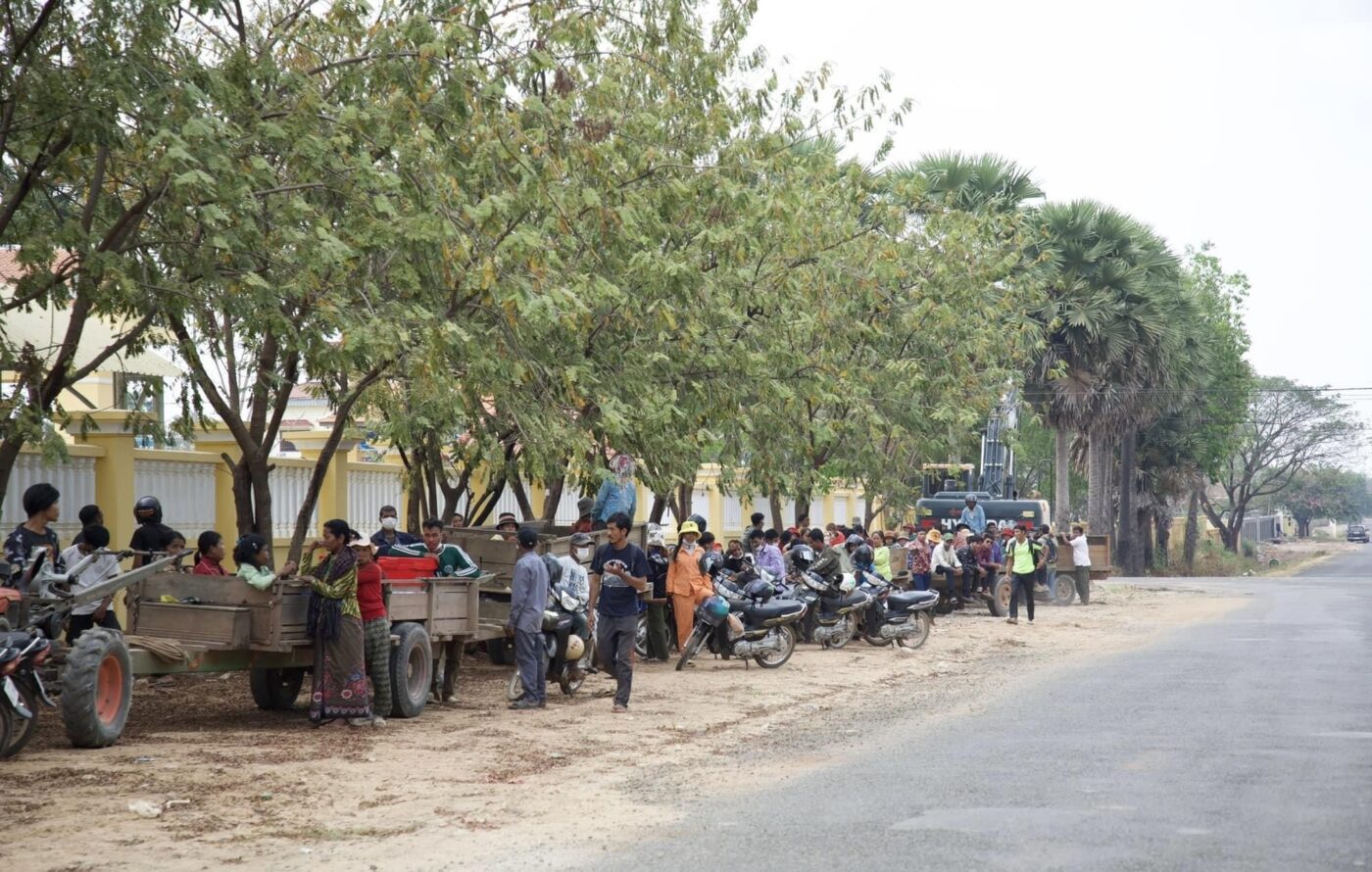
Preah Vihear Provincial Court prosecutor Thol Keom Heom said that the court questioned the four defendants Tuesday in order to hear their testimonies about the dispute with the company. He added that he planned to collaborate with relevant authorities to define whether the disputed land belongs to the company and what type of legal action can be taken in the future.
“I will work with authorities such as the Department of Land Management and the Department of Agriculture to conduct land assessment measurements over the disputed land to see whether it overlaps with state public land that was granted as an economic land concession,” he said.
If their assessments determine that the land is in fact part of the economic land concession, he said legal action will be taken against the community members. He claimed that the community is not permitted to cultivate on land granted to a company through an economic land concession without permission from the company, even if the company has stalled their development.
The 2001 Land Law stipulates that land concessions created for industrial cultivation may be taken back by the government if they remain inactive for more than 12 months without proper justification.


